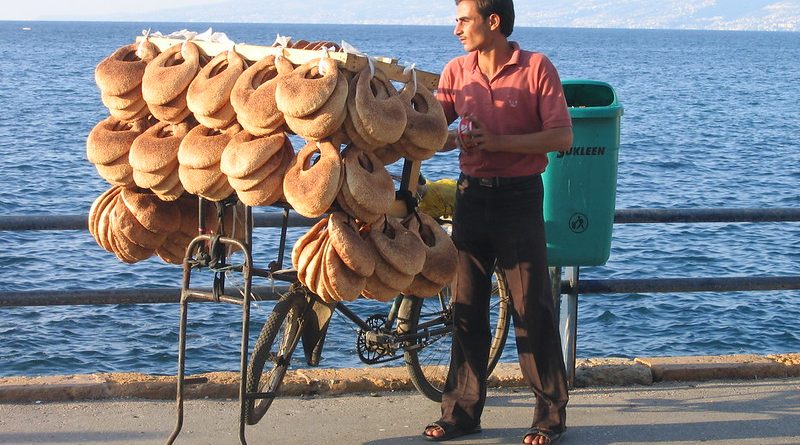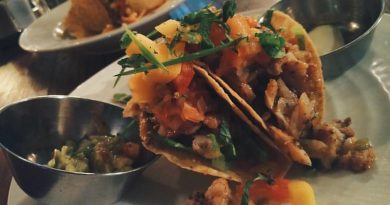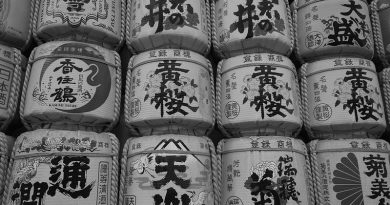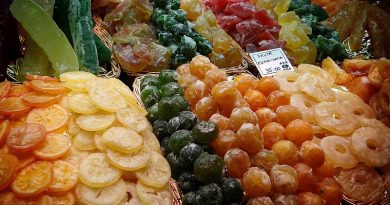The Story of Food: Connexions – Lebanon
The hospitality industry has been one of the most heavily affected by COVID-19. During the initial stages of lockdown, many small businesses were forced to confront their poor infrastructures, re-routing to the land of take-out and online delivery. Living amidst the digital revolution, it may come as a surprise to learn that many cafes, delis, restaurants, supermarkets were not, as of yet, commanding the world of the web.
As an article from The New York Times pointed out, a preference for analogue business models was particularly prevalent in Manhattan’s Chinatowns, where, gourmet institutions run by-and-large at the behest of multi-generational families, have historically depended upon footfall and a loyal walk-in clientele.
The forces of modernity that would now serve to buttress these: an extensive Instagram following and a prime-slot on apps like UberEats, have never really been required. Rather, the absence of them i.e the commitment to serving food in real-time, to being solely ‘brick-and-mortar’, is what has made them and the social experiences they deliver so very special.
Adding to the pressures wrought by the new world demands for virtual hospitality, are disasters like the explosion that occurred in Beirut, Lebanon just last week. This saw many small businesses, skirting signs of recovery, entirely gone to 2020’s apocalyptic wind.
At Pilot Guides, recognising how food and drink—the rituals and practises that involve these—have the power to root people to their land, connect them to their environment and bring disparate peoples together, we are excited to announce the launch of our newest digital feature.
Each month, we will focus on a key place, person and a product/s all of which will be built around, or serving an initiative within the food/hospitality industry. Occasionally, we will throw in a plate, if not for the square symmetry of 4 Ps—then, borrowing from Laura Jackson, TV presenter and founder of Hoste London’s lockdown mantra, in order to #makeamealofit.
If months of quarantining have taught us anything, besides how much we value our hospitality sector, and how integral it is in shaping and maintaining our social relations, it is how to live in the eternal present. How we approach our mealtimes has become much less the cause of a widespread indigestion, than a ceremonious pause in our day. A communal endeavour to rekindle the flame between families, flatmates, or even as a way to positively re-connect with oneself.
PLACE:
In light of recent events, it seems only appropriate to first turn our attention to the city of Beirut, Lebanon.
PERSON:
Kamal Mouzawak is a Beirut chef, and founder of the restaurant, Tawlet, which means ‘Table’ in Arabic. The restaurant operates of the concept of ‘make food, not war’. He is also the founder of @soukeltayeb.
Started in 2004, the experimental farmers market looks to promote small-scale farmers and producers with the intention to preserve Lebanese culinary traditions, as well as to protect the region’s natural environment, hence its desire to develop more sustainable forms of agriculture. Sadly, the central market was destroyed in the explosion.
Mouzawak has started a crowdfunding campaign, not only to support many of these farmers, and their families, now out-of-pocket, but also to rebuild a central market place. Beyond immediate disaster relief, this money is to be invested long-term, in a future that believes in the power of food as a primary healing agent.
In a podcast interview with Global Consultant, Susan Coleman (2016), the two discussed Lebanon’s fractious history, rife with civil war since the late 1950s, stemming from a complex web of issues pertaining to divisions of power, national identity, matters of social justice. As always, these found a way of linking back to the much wider and messier, Palestinian question. Alliances invariably split.

A ‘Green Line’ of foliage marked the split between East & West Beirut. Beirut, Lebanon. 1982. James Case, Flickr Creative Commons
So stark were the country’s religious, social and political divides, that between 1975-1990, a so called ‘Green Line’ was introduced in Beirut between East and West, in order to physically demarcate this split. Whilst programmes for rehabilitation were introduced at the turn of the century, a process which Professor of Anthropology at Lincoln Centre, Aseel Sawalha, outlines well in her book Reconstructing Beirut: Memory and Space in a Postwar Arab City, (University of Texas, 2010), these were largely top-down initiatives, that rather than treat historic wounds, a long and often, painful process, merely looked to temporarily bandage them. Far from the ‘melting pot’, which politicians and government officials proudly proclaimed of the restored city-centre, contradictory visions of this public space continued to persist. Hence, why the destruction of Mouzawak’s central market, in which food’s ‘connectivity’, it’s gathering-force, so beautifully confounded, must not only be lamented, but its revival needs to be ensured.
PRODUCTS:
Whilst a direct donation to Mouzawak’s crowd-funding campaign is linked here and is most welcome; in the wider interest of our readers, we have also curated a list of products to buy, and activities to engage in, in which 100% profits will be donated to charities supporting Beirut’s recovery, whilst also championing its culinary scene.
- On Instagram, join the #SahteinBeirut challenge and support the victims of Beirut’s explosion.
- Beiruti local, @nohadbz is hosting donation based dinners with 100% proceeds going to the Beirut disaster relief. First dates are Thursday 13th and Friday 14th August. Direct Message him on Instagram if you would like to join.
- Food consultant, Lea Sednaoui of @chewchoose has curated an e-Cookbook ‘Nourish & Nurture: Mediterranean recipes to bounce back’ , in which all the proceeds will be donated to Lebanese charities. Link to purchase here.
- Follow and support Sam Bloch from the World Central Kitchen, an American based organisation that helps fight global hunger, and his initiative #ChefsforBeirut – as him and his team mobilise on the ground there serving meals alongside local partners and chefs, including Mouzawak and non-profits like the Red Cross and the Lebanese Food Bank. As Bloch says, there is nothing that can compare to a comforting plate of food in a time of crisis.
WCK’s Relief Team supported by local chefs we’ve hired & volunteers is cooking thousands of fresh meals from our main kitchen at Amar Seaside. On the menu: sandwich djej made with roasted chicken & garlic spread and a dish of minced beef & shredded chicken w/ rice #ChefsForBeirut pic.twitter.com/IrZStcmsXG
— World Central Kitchen (@WCKitchen) August 13, 2020
- In solidarity with Beirut, all of Ottolenghi’s London Delis (Notting Hill/Islington) are offering a pistachio, rosewater and semolina cake until the end of September, with all proceeds going to Lebanese charity Beit El Baraka. This organisation is working tirelessly to develop and provide an emergency home rehabilitation services and to ensure all those displaced by the explosion are provided with food and medical attention.
A post shared by Yotam Ottolenghi (@ottolenghi) on
By Ines Cross




